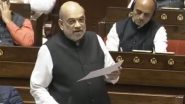New Delhi, Dec 17 (PTI) The commerce ministry needs to properly monitor the scheme to promote exports, EPCG, as it not only allows duty-free imports of capital goods but also grants a long gestation period for meeting the export obligation, according to a CAG audit report.
The scheme allows import of capital goods for pre-production, production, and post-production at nil customs duty but subject to meeting export obligations.
The report also said the import of capital goods from ports other than the registered port without adhering to the prescribed procedure involves the risk of importing the goods from multiple ports using the same authorisation that have revenue implications and has the risk of misuse of the bonds.
The customs and regional authorities should monitor such cases scrupulously and invoke penal action for non-compliance, CAG said in a statement.
It has presented the performance audit report on the scheme in Parliament.
"The scheme not only allows duty-free imports of capital goods but also grants a long gestation period for meeting the export obligation (EO) and therefore needs to be duly monitored by the regional authorities for successful implementation of the scheme," it said .
A performance audit was conducted to ascertain whether the issue, utilisation, redemption and implementation of authorisations by the Directorate General of Foreign Trade (DGFT) and the customs department is being done in an efficient and effective manner, it said.
"This report contains 72 audit observations and 26 recommendations. The performance audit has revenue implication of Rs 479.81 crore," it added.
It also said the audit has observed incorrect fixation of Specific Export Obligation (SEO), fixing same Average Export Obligation (AEO) for different financial years as well as different AEOs for the same fiscal year.
It added that the audit found that facilitation measures of the online system for processing of applications under the ease of doing business for simplifying the process of issuance of EPCG, authorisations need to be reviewed as the online system do not check the veracity of the documents submitted, but only prompts to upload the documents before submission.
Further, it said it was observed that the extensions were granted in a routine manner without any reasonable assurance in the form of export orders, purchase contracts, and filing of annual returns to ascertain the feasibility of fulfilment of EO (export obligation) within the extended period.
(This is an unedited and auto-generated story from Syndicated News feed, LatestLY Staff may not have modified or edited the content body)













 Quickly
Quickly
















